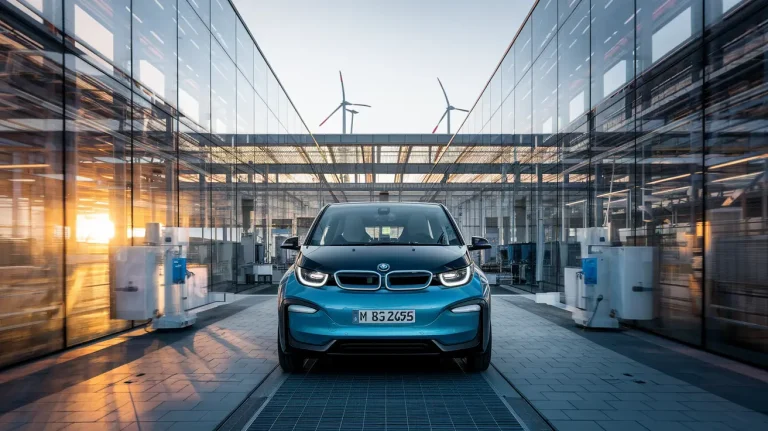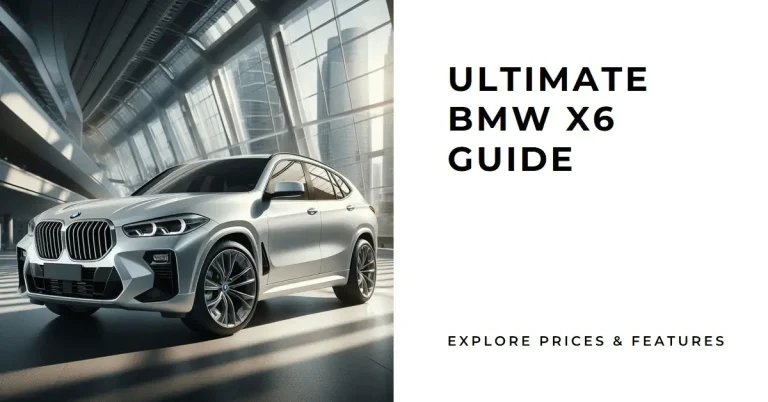How Many Miles Can a BMW Last? Mileage Lifespan Guide
BMW is revered for engineering quality vehicles that can clock seriously impressive mileage when properly maintained. But how many miles can you realistically expect to get out of a BMW before major repairs are needed?
In this in-depth guide, we’ll cover everything you need to know about BMW mileage lifespan including:
- Average mileage lifespans of popular BMW models
- Key factors that impact BMW mileage lifespan
- Tips to maximize the miles you get out of your BMW
Whether you are looking to buy a used BMW and want to evaluate mileage, or already own one and want it to last, this guide will equip you with the knowledge to get the most miles out of your Ultimate Driving Machine.
Average Mileage Lifespans of Popular BMW Models
While driving habits, maintenance, and other factors impact how long your BMW will last, here are the average mileage lifespans you can expect from some of the most popular BMW models:
BMW 3 Series
The iconic BMW 3 Series compact luxury sedan is the brand’s top-selling model. With proper maintenance, these are the average mileage ranges you can expect:
- BMW E36 3 Series (1990-2000) – Up to 200,000 miles or more. Models with the inline-6 cylinder engine regularly reach over 200k miles.
- BMW E46 3 Series (1999-2006) – 200,000 to 250,000 miles. The later E46 models have improved engine design and longevity.
- BMW E90/E91/E92/E93 3 Series (2005-2013) – 200,000 to 300,000 miles. With proper maintenance these 3 Series models can go up to and beyond 300,000 miles.
- BMW F30/F31/F34 3 Series (2012-2018) – Over 200,000 miles when properly maintained. Too new to have high mileage examples, but show promise.
As you can see, with proper maintenance and care, most BMW 3 Series models can reach 200,000 miles or more before requiring major engine work.
BMW 5 Series
BMW’s midsize luxury sedan, the 5 Series also boasts impressive longevity:
- BMW E39 5 Series (1996–2004) – 200,000 to 250,000 miles. Models with the inline-6 can reach even higher.
- BMW E60/E61 5 Series (2004–2010) – 150,000 to 200,000 miles. Had some engine issues but still capable of high mileage.
- BMW F10/F11/F07 5 Series (2010-2017) – 150,000 to 250,000 miles. Improved reliability over E60 gen.
- BMW G30/G31/G38 5 Series (2016-Present) – Too new to predict accurately. Expected to exceed 150,000 miles with proper maintenance.
The 5 Series averages slightly lower mileage than the 3 Series, but well maintained examples can still exceed 200,000 miles.
BMW 7 Series
BMW’s flagship full-size luxury sedan:
- BMW E38 7 Series (1994-2001) – 150,000 to 200,000 miles. Models with the inline-6 can reach up to 300,000 miles.
- BMW E65/E66 7 Series (2001–2008) – 100,000 to 150,000 miles. Prone to electrical and engine issues limiting longevity.
- BMW F01/F02 7 Series (2008-2015) – 150,000 to 200,000 miles. Improved reliability over E65/E66 generation.
- BMW G11/G12 7 Series (2015-Present) – Too new, but expect comparable lifespan to F01/F02 generation.
The 7 Series averages slightly lower mileage than BMW’s smaller sedans, with 150,000-200,000 miles being the typical lifespan. Electrical gremlins and costly repairs can limit lifespan on some generations.
BMW X3
BMW’s compact luxury SUV:
- BMW E83 X3 (2004–2010) – 150,000 to 200,000 miles or more. Reliable with few common issues.
- BMW F25 X3 (2011-2017) – 150,000 to 200,000 miles. Comparable longevity to earlier E83.
- BMW G01 X3 (2017-Present) – Too new, but expect similar lifespan of 150,000-200,000 miles.
With car-like driving dynamics, the X3 SUV matches the mileage capabilities of BMW’s sedans. Well maintained examples can reliably exceed 150,000 miles.
BMW X5
BMW’s midsize luxury SUV:
- BMW E53 X5 (1999–2006) – 150,000 to 200,000 miles. First-gen had some issues, but capable of high mileage.
- BMW E70 X5 (2007–2013) – 150,000 to 250,000 miles. Improved reliability over first-gen.
- BMW F15 X5 (2014-Present) – 150,000 to 250,000 miles expected. Too new to accurately predict.
Similar to the 5 Series sedan, the X5 SUV averages 150,000 to 250,000 miles for well maintained models. Capable of exceeding 200k miles with proper care.
As evidenced above, with diligent maintenance and care, most BMW models can reach 200,000 miles or more before requiring major engine or transmission work. BMW engines and drivetrains are designed for the long haul when properly maintained.
What Impacts BMW Mileage Lifespan?
A BMW’s lifespan in terms of mileage depends on several key factors:
BMW Model and Year
Obviously, the specific BMW model and year impacts total mileage capability. As seen above, newer models and certain series tend to achieve higher average mileages.
Each generation of BMW models brings improvements in engineering, reliability and longevity over the previous generation. So newer models will typcally last longer than their predecessors.
Within the same generation, proper maintenance plays a bigger role in determining mileage lifespan than the model year alone. But the later model years may have benefited from incremental design improvements and production quality gains over initial model years.
Engine Type
The engine equipped in a BMW also affects durability and total mileage capability. Here are some generalizations:
- Inline-6 cylinder engines: The naturally aspirated inline-6 cylinder engines used in many BMW models are generally regarded as the most durable and longest lasting. They are smooth running by design which reduces wear. Models equipped with BMW’s iconic inline-6 engines often reach 300,000 miles when properly maintained.
- V8 engines: BMW’s V8 engines are also designed for longevity, although require more extensive maintenance than inline-6 engines. Properly maintained V8 engines can reliably exceed 150,000 miles.
- V12 engines: The ultra-luxurious V12 engines used in elite BMW models like the 760Li generally have higher maintenance costs and shorter lifespan versus BMW 6 and 8 cylinder engines. Still, well maintained V12 engines can reach 150,000 miles.
- 4-cylinder turbo engines: BMW’s modern 4-cylinder turbocharged engines optimize fuel efficiency over longevity. With diligent maintenance they can still reach 150,000 miles, but may require closer attention and more repairs than 6 or 8 cylinder engines starting at 100,000 miles.
- Diesel engines: BMW’s diesel engines used in some 3, 5, and 7 Series models are generally durable and capable of exceeding 200,000 miles with proper maintenance. They offer enhanced fuel efficiency over comparable gas engines.
So in general, BMW inline 6-cylinder, V8, and diesel engines optimized for longevity will achieve higher mileages than turbocharged 4-cylinder engines optimized for efficiency. But any BMW engine is capable of hitting 150k+ miles with diligent maintenance.
Where and How It’s Driven
How and where a BMW is driven significantly contributes to lifespan in miles.
Highway miles are much easier on the engine and drivetrain compared to stop-and-go city driving. Consistent highway driving allows the engine and transmission to operate at optimal temperatures. Cold starts and idling associated with urban driving causes more wear over time.
BMWs owned by a single driver will generally last longer than examples used by multiple learners. Individual owners tend to drive more consistently and gently than fleets.
Northern BMWs face salty winter road conditions that can accelerate rust and corrosion, shortening the chassis lifespan relative to southern examples that avoid snow exposure.
In general, BMWs driven mostly on the highway in warm climates by a single owner will reach the highest mileages. Urban stop-and-go driving in cold climates reduces lifespan.
Owner Maintenance Habits
Diligent maintenance and care is by far the biggest factor in determining BMW mileage lifespan. A poorly maintained BMW with skipped oil changes will expire long before a pampered example with detailed logs.
Follow the factory recommended full synthetic oil change intervals, don’t delay needed repairs, use quality parts, keep it garaged, and your BMW can easily reach 200,000 miles. Neglect maintenance and problems will compound, greatly shortening the lifespan.
So while BMW engineers its vehicles for longevity, realizing that maximum mileage potential requires diligence from the owner to properly maintain it.
Tips to Extend Your BMW’s Mileage
Here are proven tips to maximize the miles you can drive your BMW before major repairs are required:
Follow the Maintenance Schedule
BMWs require regular maintenance to reach maximum mileage. Follow the factory recommended maintenance schedule outlined in your owner’s manual. This includes essentials like:
- Oil changes: Change oil with fully synthetic oil every 10,000-15,000 miles. Use only ester-based Mobil1 0W-40 or Castrol Edge 0W-40 to factory specifications.
- Fluid changes: Replace brake fluid, coolant, transmission fluid, and differential fluid at recommended intervals. Use only factory approved fluids.
- Filter changes: Swap air, fuel, and cabin filters at recommended miles to avoid reduced engine performance.
- Inspections: Thoroughly inspect key components like brakes, hoses, belts, spark plugs, battery at factory specified mileage markers. Address any needed replacements.
Following the prescribed factory maintenance schedule will optimize reliability and maximize the miles you can drive your BMW.
Use Quality Replacement Parts
When repairs are needed, always use original BMW or quality aftermarket replacement parts specifically designed for your model. Avoid cheap no-name components that often fail prematurely.
Only install parts that meet or exceed OEM specifications – don’t compromise quality to save money. It will cost you more in the long run with repeat failures.
The higher upfront cost of quality BMW-grade parts pays off with extended service life and avoided repeat repairs down the road.
Drive Smoothly and Avoid Excessive Idling
Your driving habits impact BMW longevity as much as maintenance. To maximize mileage:
- Accelerate smoothly without revving the engine excessively. Avoid aggressive jack-rabbit starts.
- Shift smoothly at moderate rpms while accelerating. Use the gear shift indicator.
- Coast to stops in gear using engine braking instead of riding the brakes.
- Avoid prolonged idling which causes engine wear from lack of lubrication.
- Maintain steady highway cruising speeds instead of constantly changing speed.
Years of hard driving will wear components faster than smooth and gradual acceleration and braking. Going easy on your BMW will enable it to go further.
Keep Tires Properly Inflated
Maintaining proper tire inflation enhances handling, braking performance, and fuel economy while reducing uneven wear. Check pressures monthly and refill toward the upper limit of the recommended PSI range.
Rotating tires at 5,000 mile intervals equalizes tread wear across all four tires so they degrade evenly. This maximizes the mileage you get from a set before needing replacements.
Proper tire care ensures you get the full mileage out of your tires before needing expensive replacements. Under-inflated tires wear out much quicker.
Regularly Wash and Wax the Paint
While not directly related to mechanical longevity, regularly washing and waxing your BMW’s paint pays dividends in retaining exterior appearance and resisting corrosion as miles add up.
Wash your BMW often with a high-quality car wash soap to remove dirt and grime that causes swirl marks and dulls the paint. Wax at least twice yearly to protect the clearcoat from oxidation and fading.
Addressing paint chips and scratches as they occur prevents rust from forming and spreading underneath – extending the lifespan of the body panels and undercarriage.
Clean and Condition the Interior
Similarly, caring for the interior maintains that luxurious look and feel as your odometer rolls onward.
Vacuum floor mats frequently to prevent carpet wear and staining from ground-in dirt. Condition leather seats with BMW-approved leather cleaner/conditioner to prevent cracks and drying.
Use interior cleaners and protectants to keep dash and trim looking new, without shiny streaks and UV damage.
Detailing the interior keeps it looking and feeling showroom fresh as the mileage increases.
Address Mechanical Repairs Immediately
Never ignore warning lights or symptoms of mechanical issues like oil leaks, strange noises, smells, or operational anomalies. Addressing small problems quickly prevents major breakdowns down the road.
Identifying issues early while they are still minor repairs will maximize longevity far more than waiting until they turn into major engine or transmission rebuilds.
So if your BMW starts acting up, have it inspected right away by a trusted independent shop that specializes in BMW repair. The cost of a diagnostic is much less than the resulting damage from ignoring it.
Get the Most Miles out of Your BMW
While BMW models are all built to deliver a minimum of 100,000 miles when properly maintained, most have the engineering and durability to exceed 150,000 or 200,000 miles with diligent care and preventative maintenance. Some exceptional examples even reach 300,000 or 400,000 miles.
No matter what BMW model you drive, following the tips presented in this guide will help maximize the mileage you can expect to receive from it. Of course, random part failures can happen even with diligent maintenance – such is the nature of complex mechanical objects. But you stand the best chance of reaching that 250k mile mark by taking preventative steps to care for your Ultimate Driving Machine.
With iconic BMW performance, luxury, and driving enjoyment, putting more miles on it keeps that BMW feeling going strong. So follow these tips and drive your BMW to its full long-lasting potential.







